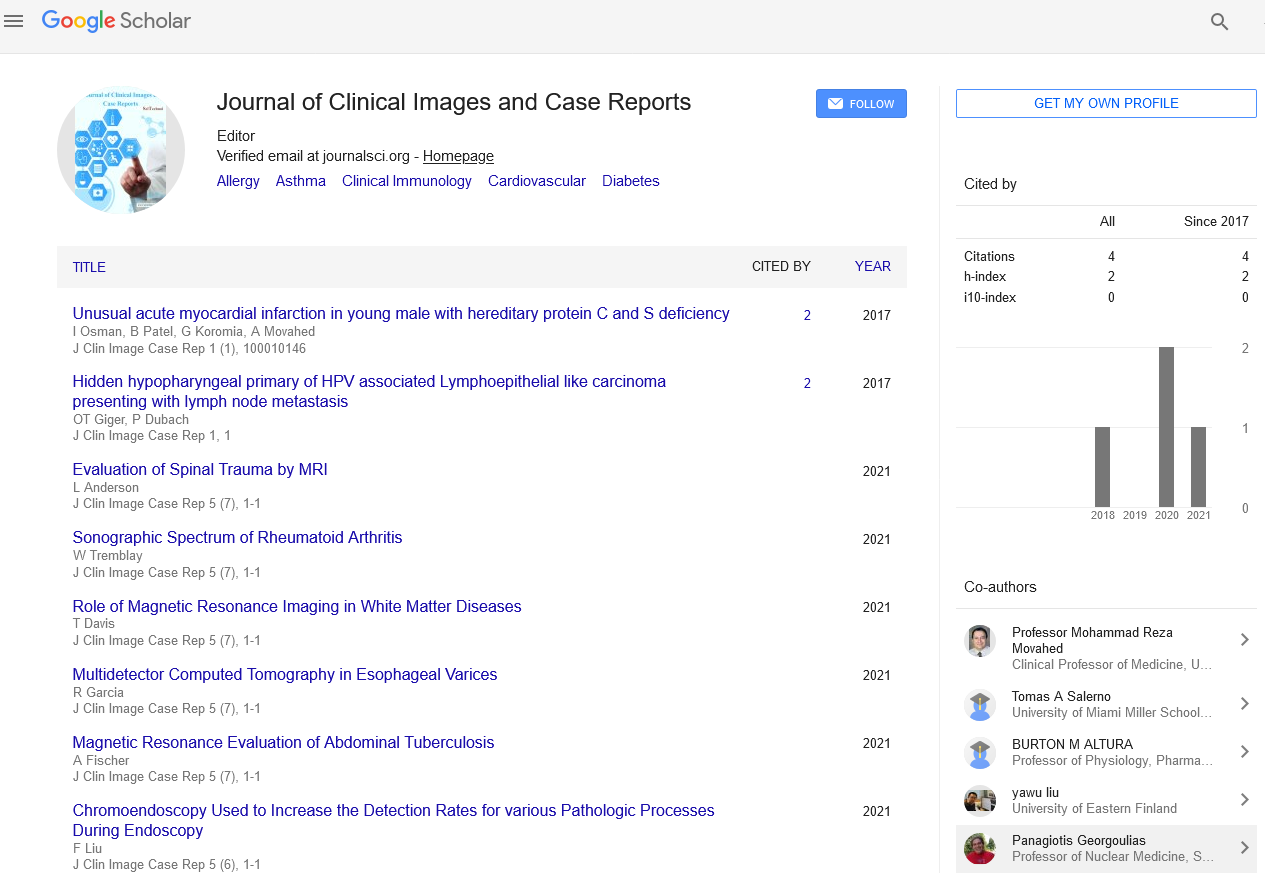Opinion Article, J Clin Image Case Rep Vol: 7 Issue: 4
Rare Metabolic Disorders in Kids: Challenges, Progress, and Treatment
Conti Byung*
1Department of Hepatobiliary Surgery and Liver Transplantation, Hôpital La Pitié Salpêtrière, Paris, France
*Corresponding Author: Conti Byung,
Department of Hepatobiliary Surgery and
Liver Transplantation, Hôpital La Pitié Salpêtrière, Paris, France
E-mail: byung.conti1@psl.aphp.fr
Received date: 15 July, 2023, Manuscript No. CICR-23-113226;
Editor assigned date: 17 July, 2023, PreQC No. CICR-23-113226 (PQ);
Reviewed date: 31 July, 2023, QC No. CICR-23-113226;
Revised date: 07 August, 2023, Manuscript No. CICR-23-113226 (R);
Published date: 17 August, 2023, DOI: 10.4172/CICR.1000263
Citation: Byung C (2023) Rare Metabolic Disorders in Kids: Challenges, Progress, and Treatment. J Clin Image Case Rep 7:4.
Abstract
Within the field of pediatrics medicine, there exists a group of formidable adversaries known as rare metabolic disorders. These conditions, often lurking in the shadows of mainstream healthcare, pose complex diagnostic challenges and demand innovative treatment approaches.
Description
Within the field of pediatrics medicine, there exists a group of formidable adversaries known as rare metabolic disorders. These conditions, often lurking in the shadows of mainstream healthcare, pose complex diagnostic challenges and demand innovative treatment approaches. This article delves into the intricate landscape of rare metabolic disorders affecting children, focusing on the journey of diagnosis, treatment, and hope for affected families.
Unveiling the rarity
Rare metabolic disorders encompass a diverse array of conditions, each characterized by disruptions in the body's normal metabolic processes. They often result from genetic mutations that impair the function of enzymes or transport proteins crucial for metabolism. While individually rare, collectively, these disorders affect a significant number of children worldwide.
Challenges in diagnosis
Diagnostic odyssey: Families navigating the concept of rare metabolic disorders often embark on a diagnostic odyssey, encountering numerous healthcare providers and undergoing extensive testing before arriving at a definitive diagnosis.
New-born screening: Advances in newborn screening have expanded the ability to identify some metabolic disorders shortly after birth, allowing for early intervention and treatment.
Genomic medicine: The advent of genomics has revolutionized the diagnostic process, enabling the identification of causative genetic mutations, even in extremely rare conditions.
Metabolomics profiling: Metabolomics profiling techniques have provided insights into the biochemical alterations associated with these disorders, aiding in diagnosis and monitoring.
Innovative treatment approaches
Treatment options for rare metabolic disorders in children vary widely and depend on the specific disorder. Some key approaches include:
Enzyme Replacement Therapy (ERT): ERT is a lifeline for certain metabolic disorders, providing the missing or malfunctioning enzyme to restore metabolic function.
Dietary management: Specialized diets, such as low-protein diets, are employed to manage conditions like phenylketonuria (PKU) and Maple Syrup Urine Disease (MSUD).
Gene therapy: Emerging gene therapy approaches hold potential for correcting the genetic mutations underlying certain metabolic disorders.
Transplantation: In cases where organ damage has occurred, organ transplantation may be considered, such as liver or kidney transplants.
Supportive care: Symptomatic treatment and supportive care help manage complications and improve the quality of life for affected children.
The power of early intervention
Early diagnosis and treatment initiation are often pivotal in mitigating the devastating effects of rare metabolic disorders. Timely interventions can prevent organ damage, developmental delays, and cognitive impairment, offering a glimmer of hope to affected children and their families.
Support and advocacy
Families navigating the complexities of rare metabolic disorders require comprehensive support networks. Advocacy groups, patient associations, and rare disease communities play crucial roles in connecting families, providing resources, and advancing research efforts.
Conclusion
Rare metabolic disorders affecting children represent an ongoing medical challenge that demands unwavering dedication from healthcare providers, researchers, and families alike. As diagnostic techniques and treatment modalities continue to evolve. Through collaboration, research, and the sheer determination these disorders, we inch closer to better outcomes and improved lives for children facing the rarest of metabolic battles.
 Spanish
Spanish  Chinese
Chinese  Russian
Russian  German
German  French
French  Japanese
Japanese  Portuguese
Portuguese  Hindi
Hindi 